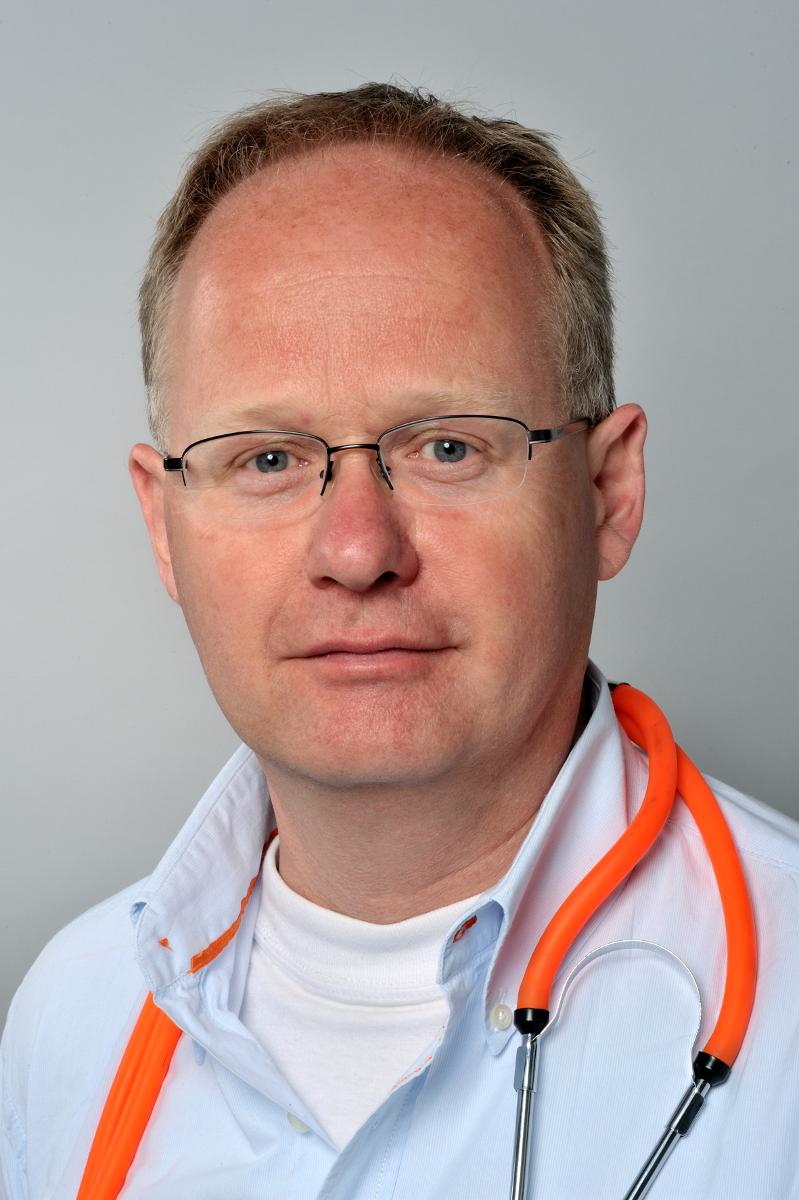It will soon be that time again – time to get the freshers drunk. Nico van der Lely is hoping for the best. He works at the alcohol clinic in the Reinier de Graaf Gasthuis hospital and is providing awareness-raising information during OWee (Welcoming Week). He’s particularly worried about strong sweet drinks.
Nico van der Lely: "When you’re drunk, you can have convulsions and vomit at the same time, causing you to choke on your own sick." (Photo: Reinier de Graaf Gasthuis)
Students slurring their words and staggering around the city is an all-too familiar picture. The OWee introductory week starts this Sunday, and after that, during the student association initiation ceremonies, young students will again be expected to pour drink down themselves. But alcohol consumption is not as innocent as many students think, warns Nico van der Lely. He’s taking part in an awareness-raising campaign, launched by the Red Cross student organisation and supported by five major Delft student associations that have signed the declaration of intent to combat alcohol abuse.
What’s the problem?
“In the old days, OWee was about getting to know the city. Things are different now and it’s become a massive drinking session. Blood-alcohol levels of 2.5 are not unusual. We sometimes see young people with even more alcohol in their blood. Last year at the clinic, we even had a 19-year-old mining student with a blood-alcohol level of 2.8. He claimed that he’d only been drinking beer. I said, ‘that’s not possible; beer doesn’t do that to you’. He had a vague memory of lying drunk on the floor in a club building with someone giving him gin instead of water to drink. Pouring out alcohol can in fact sometimes almost be manslaughter. When you’re drunk, you can have convulsions and vomit at the same time, causing you to choke on your own sick. Or you can head off into the city and end up in the canal. You’re no longer aware of what’s up and what’s down.”
Is it only about the medical risks?
“TU Delft is also completely fed up with it. Society is changing. The university is becoming increasingly international. Students from Muslim countries are horrified. They think ‘what on earth’s going on here?’ Then there’s the property damage. You can’t imagine how many road signs disappear during OWee. It costs a huge amount of money. And the only thing we complain about are the letterboxes that need taping up during New Year because of fireworks. Everyone is now committed to doing something about the problem. Even the students realise something needs to change.”
And that’s why you will now be providing awareness-raising information?
“We’re applying ‘three-stage rocket’ methodology. People from the OWee committee have already been briefed at the clinic, along with around 20 members of the student associations who signed the declaration of intent. [The signatories are: the Proteus-Eretes rowing club, the Delftsch Studenten Corps, Virgiel, the St. Jansbrug student association and the Delftsche Studenten Bond, TvD ed.] The second stage involves someone on the committee of every association being given responsibility for alcohol-related issues. Currently, you have the chair, treasurer and secretary. A new position now needs to be added to this: ‘alcohol’. And we’ll be providing information during the OWee. I explain the effect alcohol has on the brain and how the brain generally continues to develop until the age of 23. I also tell them all about the things I see in hospitals.”
If you take a look at the statistics, it’s not all bad news. In the Netherlands, the number of people under 18 who end up in hospital as a result of alcohol appears to be levelling off after increasing significantly for years.
“We’re seeing a turnaround. Ten years ago, the sweet drinks Goldstrike and Petrikov became popular among young children. We saw a huge rise in hospital admissions. Many parents though won’t put up any longer with their children drinking. There’s also more information at schools. Today’s youngsters of 13 or 14 have less experience of alcohol than people of the same age had ten years ago. However, we are noticing that the sweet drinks are increasing in popularity among students. Ten years ago, students only drank beer. With beer alone, you can never reach extremely high blood-alcohol levels. Before you know it, you’re spending most of your time peeing in the corner. But the sweet stuff can be really dangerous.”
Surely students are not stupid, they know this?
“There’s quite a lot of ignorance. The information sessions we’ve had so far with the associations have triggered some interesting discussions. Will we see the effect straight away? I don’t know. That’s something that we’ll be researching. Starting this year, we’ll be keeping careful records of the young people who end up in hospital with alcohol poisoning. Are they students? When exactly did they drink and what were the blood-alcohol levels? We are now launching this study into alcohol and students in Delft. The plan for the years ahead is to extend the study so we have a network that covers the whole of the Netherlands. We’ll need to really persevere with this work for a decade to see an improvement. We’re already seeing a levelling off in children’s hospital admissions. That’s a good sign. In the case of smoking, it took 60 years for attitudes to change.”
Do you have a question or comment about this article?
tomas.vandijk@tudelft.nl


Comments are closed.